Important taxes greatly affect business activities of many industries, so tax reform to promote business activities is an expected issue.
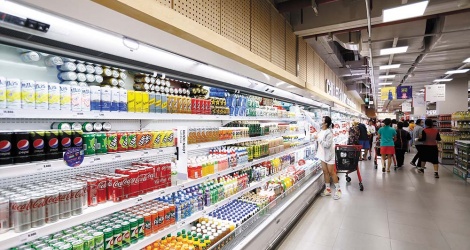 |
| According to the Draft Law on Special Consumption Tax (amended) being drafted, sugary soft drinks are subject to special consumption tax (Photo: D.T) |
Tax policy needs to harmonize objectives
The draft Law on Special Consumption Tax (amended) is being drafted by the Ministry of Finance, expected to be submitted to the National Assembly for comments at the 8th Session (October 2024) and approved at the 9th Session (May 2025). It includes a number of important changes such as the proposal to increase the special consumption tax rate on alcohol and beer products and add sugary soft drinks to the list of subjects subject to special consumption tax.
Regarding this topic that many businesses are interested in, on August 14, Dau Tu Newspaper organized a workshop on Tax Amendment to promote business activities - World experience.
According to the viewpoints of business associations, such as the Vietnam Federation of Commerce and Industry (VCCI), the Vietnam Beer - Alcohol - Beverage Association (VBA), along with many experts and businesses, the proposal to increase taxes needs to be based on practical research, a feasible roadmap, considering the endurance of businesses and industries with the benefits of the tax, while ensuring harmony with the regulations and practices of countries around the world.
 The revised Law on Special Consumption Tax may increase state budget revenue in the short term, but in the medium and long term it will reduce consumer demand, reduce business revenue and profits, thereby reducing value added tax and corporate income tax. Thus, the overall increase or decrease in tax revenue is unclear. It is necessary to assess the impact thoroughly and comprehensively, in order to choose the most appropriate amendment direction for Vietnam's economic context.
The revised Law on Special Consumption Tax may increase state budget revenue in the short term, but in the medium and long term it will reduce consumer demand, reduce business revenue and profits, thereby reducing value added tax and corporate income tax. Thus, the overall increase or decrease in tax revenue is unclear. It is necessary to assess the impact thoroughly and comprehensively, in order to choose the most appropriate amendment direction for Vietnam's economic context. 
- Dr. Can Van Luc, Chief Economist of BIDV, and Director of BIDV Training and Research Institute
Regarding the current situation of the beer, alcohol and beverage industry, in the context of many unstable and fluctuating domestic and international socio-economic situations, alcoholic beverage enterprises are facing many difficulties. The Covid-19 pandemic, followed by conflicts in Europe, the Middle East and many other places, has disrupted the supply chain, broken the supply of raw materials; economic embargoes, especially on energy and transportation, have led to abnormally high prices of raw materials. Beer and alcohol enterprises in particular are still in the recovery stage and still face many disadvantages.
The policy of preventing and combating the harmful effects of alcohol and beer under Decree 100/2018/ND-CP has further reduced beer consumption. Consumers have changed their trends and reduced their consumption of alcoholic products, partly to avoid heavy fines under Decree 100/2018/ND-CP.
With the above difficulties, businesses in the industry have recorded a serious decline in revenue and profit in 2023 and early 2024. Some breweries have had to temporarily suspend operations to find optimal solutions for assets and optimize production and business activities.
Many economic experts recommend that policies need to be carefully calculated, lest "the benefits do not outweigh the harm", with implications for adjusting policies for the alcoholic beverage industry, including not increasing special consumption tax at the present time.
Associate Professor, Dr. Ngo Tri Long, an economic expert, said that the principle of taxation is to ensure balance and harmony of interests between the State and taxpayers. According to experts, this important principle ensures revenue for the state budget, but must not let taxpayers fall into a state of misery. Implementing this principle, the State will not create tax increase shocks for businesses, society, and workers. If the total tax payable is too large, the lives of workers are not guaranteed, the economy will stagnate indirectly and the risk of tax evasion is very potential...
With such a high rate of increase and the continuous annual tax increase in the current options proposed by the Ministry of Finance, it will certainly lead to a severe decline in output and the consequence will be tax loss. Therefore, it is necessary to carefully consider and weigh the tax increase in the current economic context of Vietnam, in order to avoid causing shock to businesses, while still ensuring state budget revenue.
Dr. Can Van Luc, Chief Economist of BIDV Bank and Director of BIDV Training and Research Institute, analyzed that the global economic picture is declining, recovering slowly after the Covid-19 pandemic, the international business environment has many risks and uncertainties, and all have a strong impact on the Vietnamese economy due to the open and deeply integrated economy. The economic and business situation in Vietnam in 2020-2024 recorded an uneven recovery, consumer behavior and lifestyle changed, businesses still faced many difficulties, the average profit of the entire beverage industry continuously decreased (in 2021 decreased by 12%, in 2022 decreased by 6%, in 2023 decreased by 10-12% compared to the previous year).
According to Dr. Can Van Luc, the revised Law on Special Consumption Tax may increase state budget revenue in the short term, but in the medium and long term it will reduce consumer demand, reduce business revenue and profits, thereby reducing value added tax and corporate income tax. Thus, the overall increase or decrease in tax revenue is unclear. It is necessary to assess the impact thoroughly and comprehensively, in order to choose the most appropriate amendment direction for Vietnam's economic context.
Ms. Nguyen Thi Cuc, President of the Vietnam Tax Consultants Association (VTCA), said that the adjustment to increase tax rates on alcohol and beer in the coming time is necessary and consistent with the policies of the Party and the State. However, it is necessary to aim for a special consumption tax policy that is in harmony with the goals and appropriate to the specific context. Continuously increasing the special consumption tax may not bring about the high efficiency as the goal of the special consumption tax.
Accordingly, increasing taxes increases selling prices, which may limit the production of alcohol and beer, but it is not necessarily enough to achieve the goal of reducing the consumption of alcohol and beer, because in reality, increasing taxes can lead to an increase in smuggled goods. High-income consumers switch to drinking smuggled alcohol and beer. Rural consumers with low incomes are more likely to switch to self-sufficiency and sell for profit by making and mixing alcohol themselves. This behavior does not pay special consumption tax, does not ensure product quality, and affects people's health.
Thus, the goal of limiting consumption and ensuring public health is difficult to achieve. Therefore, it is necessary to consider and study more carefully the impact of rapid and high tax increases according to the Draft Law on the market, production and business activities, consumers, and public health.
“We should consider the option of extending the tax rate increase with a roadmap so that businesses have the conditions to develop plans and change production and business without too much disruption. For example, the first year the tax rate will increase by 5%, in the following years, the tax rate will increase according to a roadmap of several years, instead of one year. When there is a reasonable policy, the goals set for special consumption tax will be more harmonious, the tax increase will not be too sudden and there will be a roadmap so that business organizations have time to change, without too much impact on production, trade and food service businesses, the market and workers in this continuous supply chain,” Ms. Nguyen Thi Cuc stated her opinion.
Full impact assessment
Representatives of the market management agency also said that the large difference in tax rates, compliance costs... between legal and illegal alcohol and beer leads to a very high price difference between legal and illegal products. This creates an incentive for illegal profiteers, while people will choose cheaper, more convenient products, regardless of quality. At that time, the situation of beer and wine corked with banana leaves as before may recur.
On the business side, Saigon Beer - Alcohol - Beverage Joint Stock Company (Sabeco) proposed to postpone the adjustment of special consumption tax on beer, alcohol, and sugary soft drinks until 2027 so that businesses have more time to adapt and prepare for this new tax policy.
Research and review the special consumption tax rate, ensuring that the tax rate is reasonable in accordance with the actual situation, based on a comprehensive assessment of all impacts (consumption, public health protection goals, impacts on the budget, impacts on directly affected businesses, socio-economic impacts, etc.), as well as the recommendation of the World Health Organization (WHO) to increase the price of alcohol and beer by 10%.
In addition, according to Sabeco, to avoid shocking the market, while still ensuring common goals, Sabeco proposed to reduce the increase in special consumption tax and extend the tax increase roadmap as in previous increases (at a rate of 5% compared to the current rate) according to the plan for alcohol with 20 degrees or more and beer applied from January 1, 2017 to December 31, 2028 at 70%, from January 1, 2029 to December 31, 2030 at 75%, from January 1, 2031 at 80%; for alcohol with less than 20 degrees from January 1, 2027 to December 31, 2028 at 40%, from January 1, 2029 to December 31, 2030 at 45%, from January 1, 2031 at 50%.
“As the leading beer enterprise in Vietnam, with more than 149 years of establishment and development in Vietnam, with a system of 26 beer factories operating nationwide and actively contributing to the local budget, Sabeco affirms that it always supports the policies and laws of the State, the Government, the Ministry of Finance and other ministries and branches on the use of special consumption tax as a tool to increase budget revenue and limit the harmful effects of alcoholic beverages, as well as maintaining the current relative tax calculation method,” said a representative of Sabeco.
Ms. Trinh Thi Van Giang, representative of the Wine and Spirits Subcommittee (under the European Chamber of Commerce in Vietnam - EuroCham) analyzed that the tax increase forced businesses to cut a lot of operating costs, while the wine and spirits industry has been contributing a lot to the Vietnamese economy. In addition, businesses in the wine and spirits industry also have to face proposals and regulations in the coming time, such as increasing the global minimum tax...
Source: https://baodautu.vn/sua-thue-de-thuc-day-hoat-dong-doanh-nghiep-d222345.html


![[Photo] Looking back at the impressive moments of the Vietnamese rescue team in Myanmar](https://vstatic.vietnam.vn/vietnam/resource/IMAGE/2025/4/11/5623ca902a934e19b604c718265249d0)


![[Photo] "Beauties" participate in the parade rehearsal at Bien Hoa airport](https://vstatic.vietnam.vn/vietnam/resource/IMAGE/2025/4/11/155502af3384431e918de0e2e585d13a)






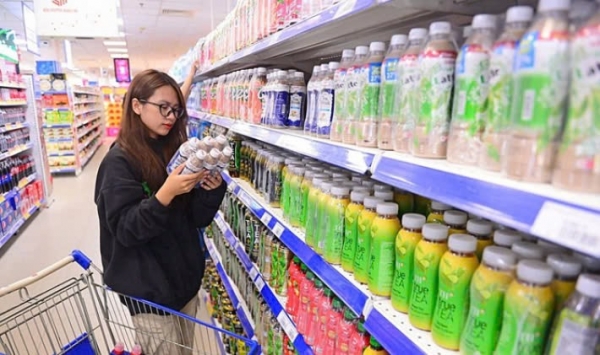

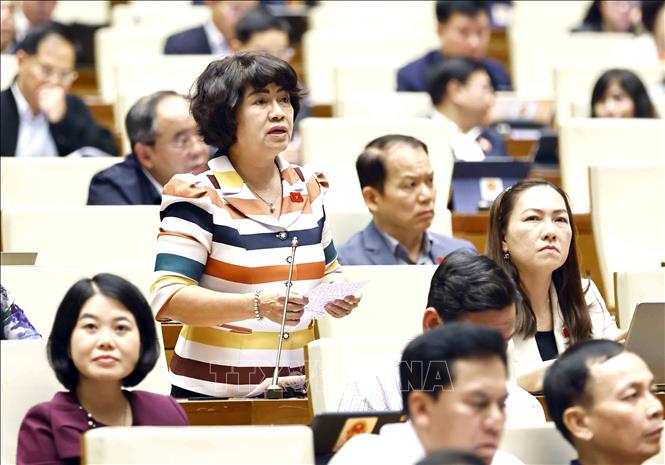

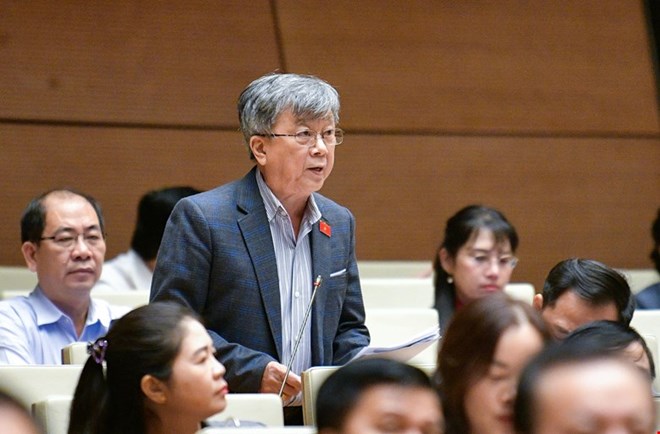

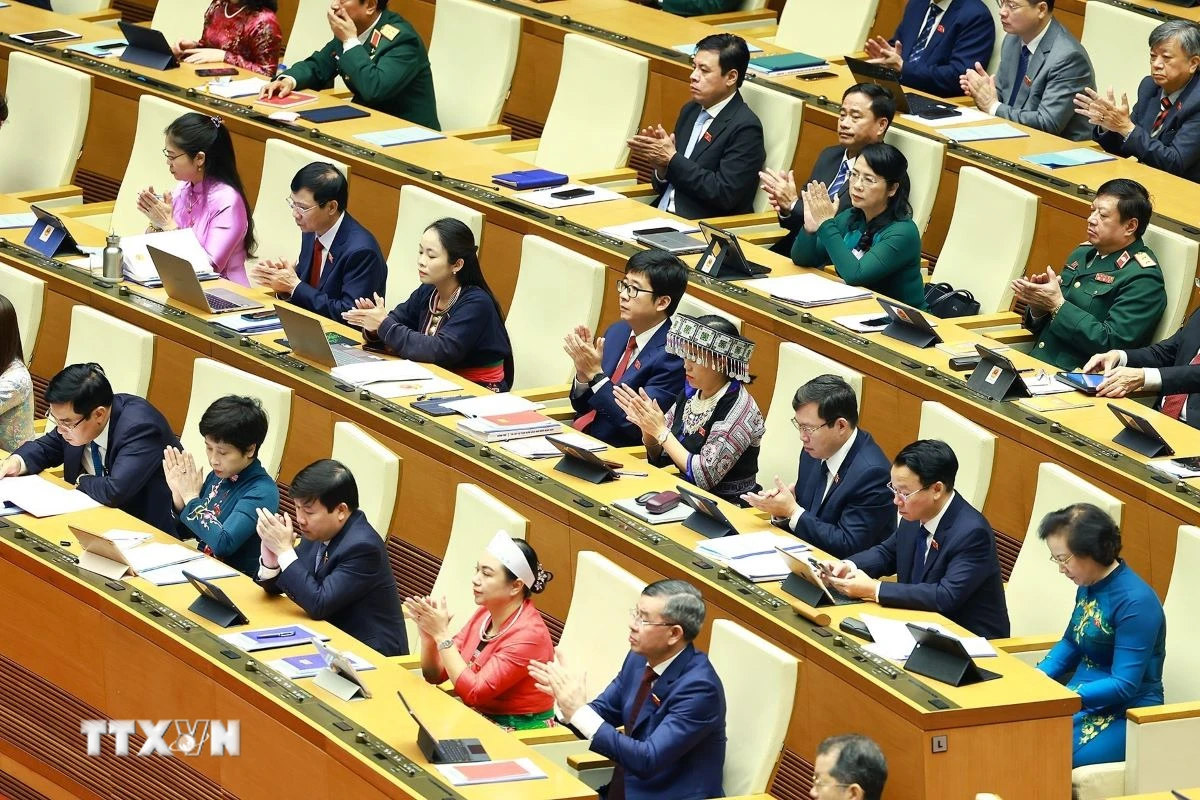

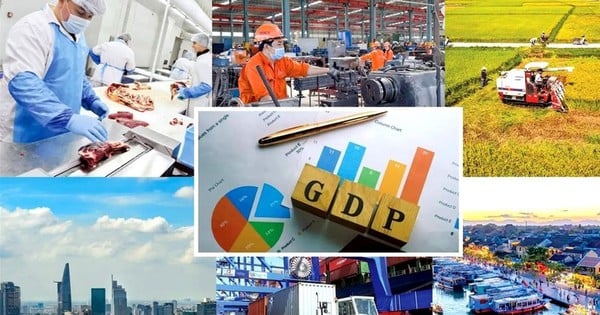


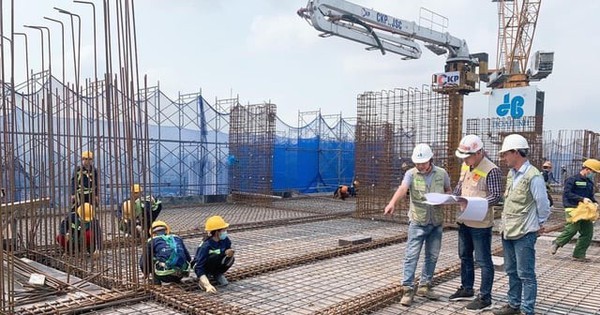
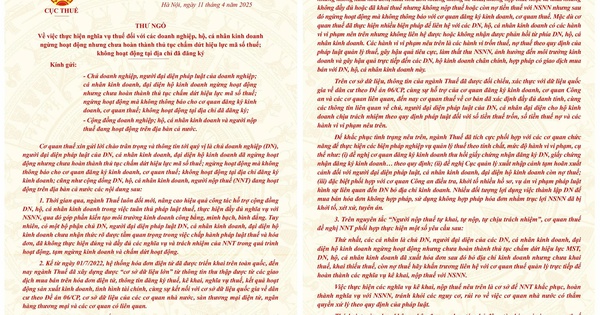






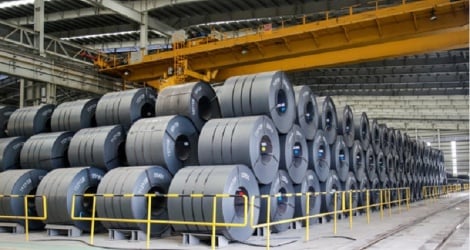

![[Photo] Summary of parade practice in preparation for the April 30th celebration](https://vstatic.vietnam.vn/vietnam/resource/IMAGE/2025/4/11/78cfee0f2cc045b387ff1a4362b5950f)











































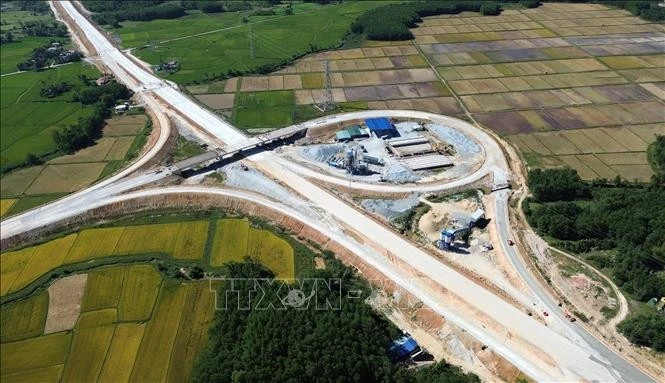

















Comment (0)